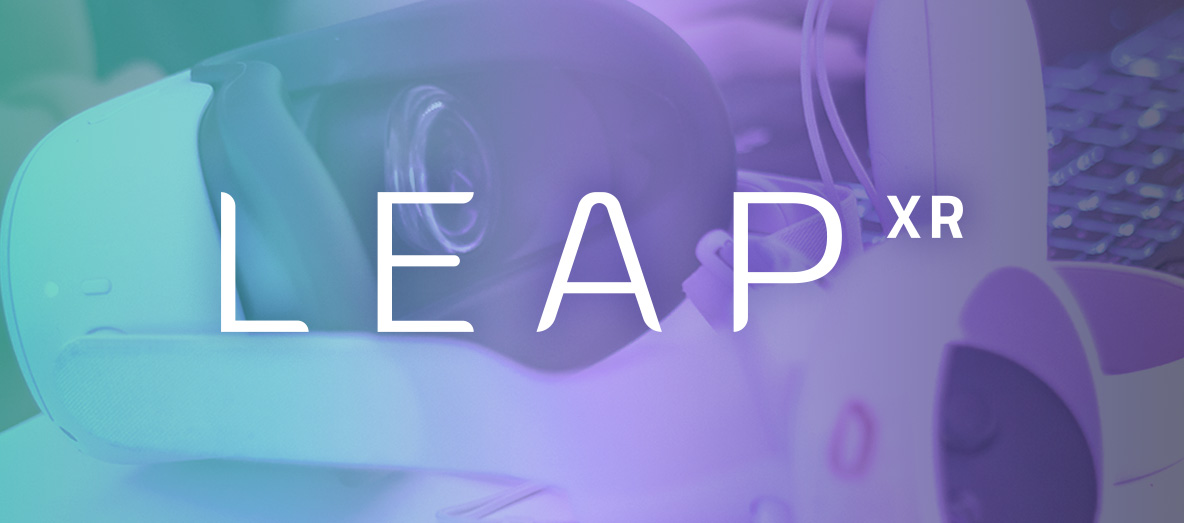What we do
By 2030, the LEAPXR consortium envisions a transformative integration of entrepreneurship within applied, multidisciplinary XR education and research in health across both national and European levels, setting a benchmark for innovation-driven, applied academic frameworks in the Health-tech domain.
Our strategic vision is to foster the growth of ten new entrepreneurial ventures each year by 2030, each creating employment for at least ten people, while addressing the challenges and opportunities of a globalized world. By focusing on innovation in healthcare and technology, we aim to develop solutions that transcend national boundaries, ensuring impact on a European scale. Recognizing that successful businesses thrive on robust cross-border networks, we are committed to building and expanding international partnerships to enable these entrepreneurs to grow and compete Europeanwide.

Work Packages
The LEAPXR project is organized into seven interconnected work packages (WPs), each playing a crucial role in driving institutional change, fostering innovation, and ensuring long-term impact in XR and health technology education. Together, these work packages form a comprehensive roadmap that empowers institutions, entrepreneurs, and researchers to collaborate, innovate, and scale transformative solutions. Explore the details to discover how these collaborative efforts are advancing XR-powered entrepreneurship and healthcare innovation across Europe.
WP1: Project Management
In Work Package 1, we establish the backbone of the project through effective coordination, transparent governance, and strategic alignment with EIT-KIC objectives. Our aim is to enable smooth execution across all levels of the consortium while advancing entrepreneurship in applied university education and strengthening innovation-driven ecosystems.
Through a dedicated management structure — including a Steering Committee, Project Management Team, Work Package Teams, and an Advisory Board — we ensure clear roles, shared accountability, and inclusive decision-making. Regular physical meetings and virtual workshops foster alignment, momentum, and collective ownership of the project’s progress.
Financial monitoring and reporting processes are designed to support partners in navigating EIT compliance requirements while ensuring efficient use of resources and timely reimbursements. A robust evaluation framework guides our progress tracking, enabling timely delivery of milestones, ongoing refinement of the work plan, and high-quality results.
We maintain a proactive risk management approach, supported by a dynamic risk register and early intervention strategies to mitigate disruptions. At the same time, WP1 drives open and consistent communication among consortium members, EIT stakeholders, and external partners. We are creating a collaborative environment that ensures the project stays focused, responsive, and resilient throughout its lifecycle.
Work Package 1 is led by Saxion University of Applied Sciences.
WP2: Institutional Engagement & Change
In Work Package 2, we drive institutional transformation by embedding entrepreneurial thinking and inclusive innovation practices within higher education institutions, with a strong focus on the XR for Health domain. The work package is designed to support novice institutions in embracing change, aligning their strategies with entrepreneurial objectives, and building sustainable structures that promote innovation at all levels.
By bringing together key innovation leaders and decision-making bodies, we facilitate peer learning, knowledge transfer, and collaborative capacity-building between pioneering and emerging institutions. Through dedicated workshops, training sessions, and mentoring formats, we enable partners to co-develop and implement their Innovation Vision Action Plans (IVAPs), with regular checkpoints to evaluate progress and share best practices.
A strong emphasis is placed on promoting diversity and gender inclusion in entrepreneurship. Activities such as the Female Entrepreneurship Engagement program and dedicated showcase events highlight success stories, address systemic barriers, and inspire institutional commitment to equity.
From IVAP kick-off and evaluation workshops to collaborative events like the LEAP Start-up Center Community launch, WP2 cultivates a dynamic, cross-institutional environment that champions entrepreneurial leadership and inclusive innovation. Closely aligned with WP3–WP5, this work package lays the groundwork for long-term cultural change and a more connected, resilient innovation ecosystem across Europe.
Work Package 2 is led by St. Pölten University of Applied Sciences.
WP3: RIS Mentorship Generating Innovation-Based Growth
In Work Package 3, we focus on fostering diversity, inclusivity, and impactful collaboration within the XR for Health sector, with a strong emphasis on engaging stakeholders from across the Regional Innovation Scheme (RIS) countries.
Through tailored European mentorship programs and trainings, we respond to the unique needs of regional partners — including entrepreneurs, researchers, students, businesses, and local authorities — empowering them to co-create meaningful XR solutions for health.
At the heart of this work package lies the development of a digital hub: a vibrant, interactive platform that drives collaboration, innovation, and knowledge exchange. This hub will serve as a learning community and shared space for: developing joint grant proposals, sharing tools and resources, exploring funding opportunities and providing targeted training and support
By connecting with a diverse network of stakeholders, we aim to promote best practices, spark cross-border partnerships, and accelerate the adoption of XR technologies that tackle pressing health challenges across Europe.
Work Package 3 is led by UCLL University of Applied Sciences.
WP4: XR Testbeds & Labs
In Work Package 4, we build a cohesive European XR infrastructure by leveraging the expertise and resources of pioneer partners St. Pölten, Saxion, and Vidzeme to guide novice partners Jamk, Fulda, and UCLL in developing their own XR capabilities. This work package aims to create a vibrant ecosystem that supports entrepreneurship and innovation through targeted mentoring, hands-on training, and collaborative events tailored to both technical and non-technical audiences.
By delivering entry-level workshops for health professionals, facilitating internships and pilot programs, and organizing annual start-up hackathons and bootcamps, WP4 fosters the growth of XR ventures across the consortium. Jointly curated conference and tradeshow visits provide valuable exposure and networking opportunities for startups, students, and SMEs.
Central to this effort is the establishment of the E³UDRES² XR Center of Excellence and the XR for Healthcare Innovation Lab, which unite the existing XR labs of pioneer partners and enable collaborative research, development, and testing of XR solutions in healthcare. Through mapping resources, enabling shared access, and hosting ‘get to know technology’ days, WP4 lowers barriers for novice partners and healthcare professionals, accelerating adoption and practical application of XR technologies.
By strengthening regional XR ecosystems and encouraging cross-border cooperation, this work package lays the groundwork for sustainable entrepreneurship and transformative innovation in XR for health across Europe.
Work Package 4 is led by St. Pölten University of Applied Sciences.
WP5: Entrepreneurship & Innovation Training
In Work Package 5, we focus on empowering students, researchers, and staff in XR and Health (Tech) with tailored entrepreneurial education that bridges innovation, technology, and healthcare. Building on successful resources from previous EIT HEI and Erasmus+ projects, this work package adapts and scales proven training modules, MOOCs (Massive Open Online Courses), and mentoring tools to meet the unique needs of the XR and health innovation landscape.
By fostering collaboration among entrepreneurs, investors, healthcare institutions, and tech companies, WP5 accelerates the translation of ideas into impactful ventures. Training solutions combine online and onsite formats, including webinars, toolboxes, and mentorship frameworks, all designed to be accessible and inclusive. Special emphasis is placed on diversity initiatives such as Saxion’s participation in the Code-V program, which supports women-led startups in accessing funding.
Through a systematic review of European XR and Health programmes, we identify best practices and gaps to tailor entrepreneurial education resources effectively. WP5 introduces innovative approaches to scouting entrepreneurial talent, digital literacy training, and hands-on incubator sessions, enabling early-stage startups to thrive with guidance from mentors and investors. A peer-to-peer learning network connects student entrepreneurs across institutions, fostering knowledge exchange and shared growth.
Training also integrates gender sensitivity and unconscious bias awareness to create an inclusive environment. Grounded in the principles of Effectuation, the theory shaping previous successful programmes, WP5 lays a robust foundation for entrepreneurial mindset development and practical business skills, complementing the business launch activities in WP6.
Work Package 5 is led by Saxion University of Applied Sciences.
WP6: Business Launch Pad
In Work Package 6, the emphasis is on on creating a structured and scalable business launch programme designed to accelerate the growth of startups in XR and HealthTech. Building on insights from WP5 and proven methodologies from previous EIT HEI projects like CITE and E.I.N.S., this work package equips entrepreneurs with tailored resources — including specialized incubator tools, mentoring, and a comprehensive pathway covering market research, funding strategies, and business development.
By partnering closely with Accent and WTC Twente, WP6 ensures alignment with regional economic priorities while enhancing market access and internationalization. WTC Twente will organize a European trade mission, provide expert guidance on global business practices, and host workshops that support startups in navigating regulatory challenges and expanding their reach.
At the core of WP6 lies the development of adaptable e-learning tools, including a dedicated MOOC tailored to XR and HealthTech entrepreneurship. This digital platform offers online training, networking opportunities, and hackathons that foster collaboration and help entrepreneurs identify market gaps and refine their innovations.
Through pilot phases and data-driven evaluation, WP6 continuously refines its approach to maximize impact and scalability, ultimately enabling faster deployment of health-improving XR innovations across Europe.
Work Package 6 is led by Saxion University of Applied Sciences.
WP7: Transferability
In Work Package 7, we drive the strategic transferability of LEAPXR’s outcomes to ensure lasting impact and wide-reaching adoption. This work package supports the consortium in embedding entrepreneurship within applied, multidisciplinary XR education and health research across national and European levels, aiming to set a new standard for innovation-driven academic frameworks by 2030.
Focusing on inclusive and respectful communication aligned with European Commission standards, WP7 guides the project’s dissemination efforts through a clear strategy built around what to achieve, what to share, whom to engage, how to communicate, who is responsible, and when to act.
By leveraging digital channels such as LinkedIn, Instagram, Facebook, podcasts, and blogs, WP7 motivates target groups and broader audiences by effectively communicating the project’s benefits and added value. All project materials and information are made openly accessible via the official LEAPXR website, fostering transparency, collaboration, and sustained engagement beyond the project’s duration.
Work Package 7 is led by Jamk University of Applied Sciences.
Disclaimer: Funded by the European Union. Views and opinions expressed are however those of the author(s) only and do not necessarily reflect those of the European Union or the EIT. Neither the European Union nor the granting authority can be held responsible for them.

